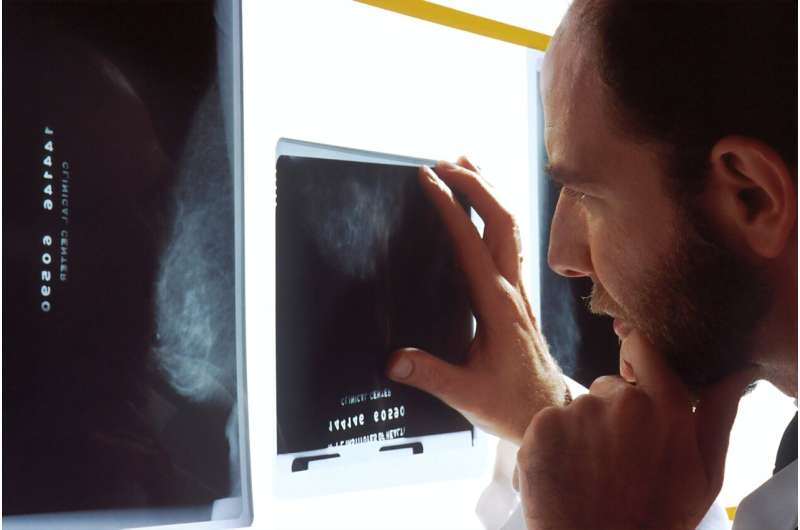This article has been reviewed according to Science X's editorial process and policies. Editors have highlighted the following attributes while ensuring the content's credibility:
fact-checked
peer-reviewed publication
trusted source
proofread
Protein discovery could help solve prostate cancer drug resistance

Researchers have identified a receptor protein known as CHRM1 as a key player in prostate cancer cells' resistance to docetaxel, a commonly-used chemotherapy drug to treat advanced cancer that has spread beyond the prostate.
The discovery opens the door to new treatment strategies that could overcome this resistance. This could ultimately help extend the lives of those with prostate cancer, one of the leading causes of cancer deaths among men.
Led by a team of scientists at Washington State University, the study showed that blocking CHRM1 in resistant prostate cancer cell lines and an animal model based on patient-derived resistant tissue restored docetaxel's ability to kill cells and stop tumor growth. The researchers did this by using dicyclomine, a drug that selectively inhibits CHRM1 activity. Dicyclomine is already on the market as a generic drug and is currently used to treat symptoms of irritable bowel syndrome.
"The effect was pretty dramatic in all the experimental models we tested," said Boyang (Jason) Wu, an associate professor in the WSU College of Pharmacy and Pharmaceutical Sciences and co-senior author on the study. "And because dicyclomine already has a clinical use, this work has immediate translational potential."
Published in the journal Cell Reports Medicine, the researchers' findings support clinical testing to confirm whether combined use of docetaxel and dicyclomine could help overcome treatment resistance in prostate cancer patients.
Docetaxel resistance can develop in prostate cancer after about six months of treatment. Chemotherapy drugs like docetaxel are among very few options available to patients with castration-resistant prostate cancer, a lethal form of the disease that no longer responds to hormone therapy.
Wu said this type of combination therapy could also potentially be used for other cancers that are currently being treated with docetaxel, such as breast and lung cancer. It may also be possible to use the same combination strategy with other similar chemotherapy drugs.
In addition to testing resistant cancer cell lines, the research team also tested cells that still responded to docetaxel treatment. They found that using dicyclomine to block CHRM1 in these cells made docetaxel more efficient at killing them. Wu said that this shows that prostate cancer patients could potentially benefit from a combination treatment strategy even before docetaxel resistance develops.
"What this suggests is that the lowest effective dose of docetaxel may be lower when the drug is combined with dicyclomine, compared to when docetaxel is used alone," Wu said. "Being able to use a lower dose could help reduce unwanted side effects and make treatment more manageable for patients."
The research team conducted the study in collaboration with scientists at the University of Washington, Medical University of Innsbruck in Austria and National Yang Ming Chiao Tung University in Taiwan.
More information: Cholinergic Signaling via Muscarinic M1 Receptor Confers Resistance to Docetaxel in Prostate Cancer, Cell Reports Medicine (2024). DOI: 10.1016/j.xcrm.2023.101388. www.cell.com/cell-reports-medi … 2666-3791(23)00617-1


















